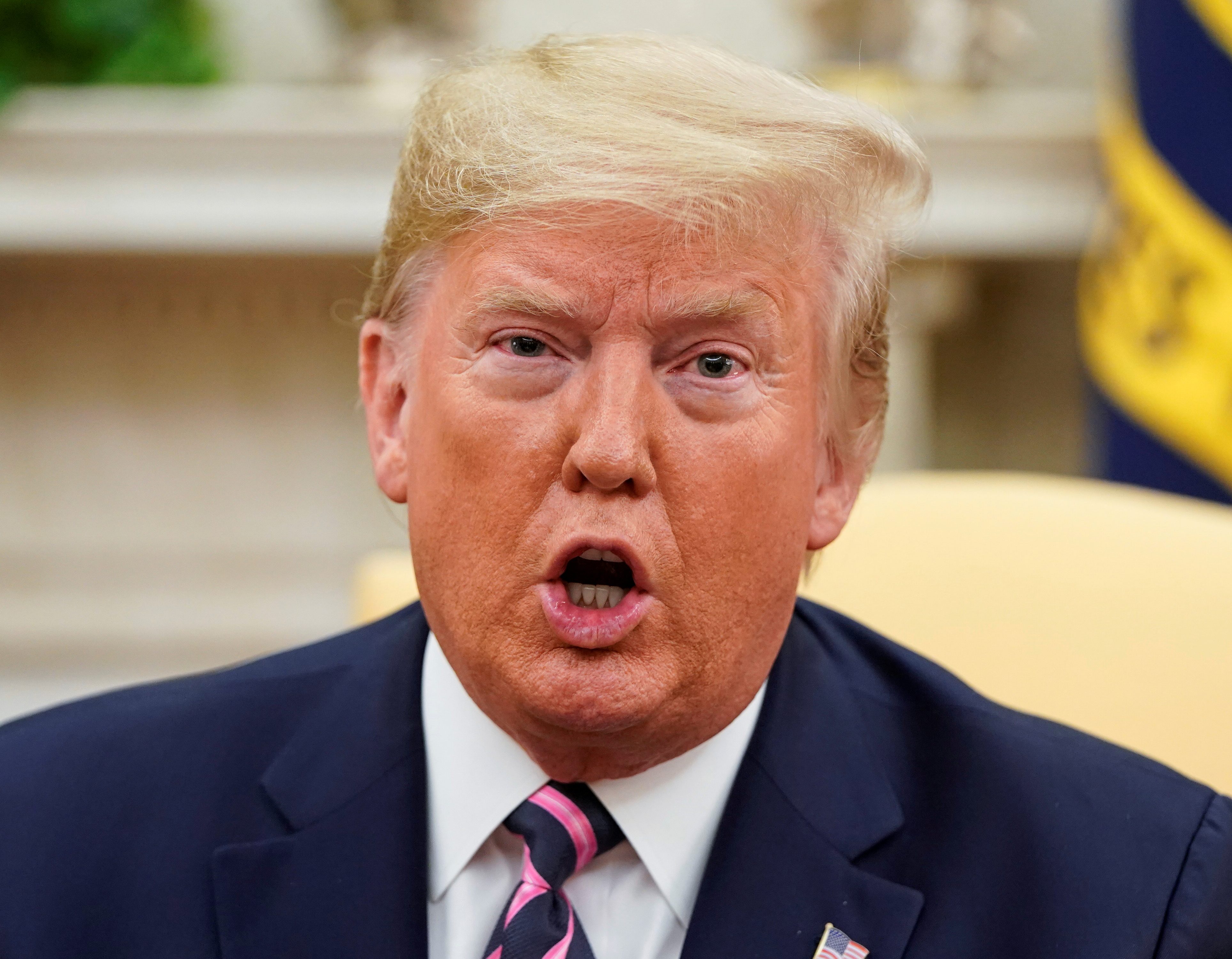- Since he was impeached in December, President Donald Trump and his allies have floated several misleading and inaccurate claims about what it means for him.
- “SIMPLY PUT, THE PARTY IN POWER ILLEGALLY SPIED ON MY CAMPAIGN, BOTH BEFORE AND AFTER THE ELECTION, IN ORDER TO CHANGE OR NULLIFY THE RESULTS OF THE ELECTION. IT CONTINUED ON WITH THE IMPEACHMENT HOAX. Terrible!” Trump tweeted on Sunday.
- Some of the president’s loyalists took it a step further and claimed that impeachment nullifies Trump’s first term and he’s therefore eligible to run for two more terms.
- These theories are baseless and reflect a misunderstanding of the Constitution and rule of law.
- Scroll down to read why they don’t hold merit.
- Visit Business Insider’s homepage for more stories.
Since President Donald Trump was impeached in December, he and his allies in Congress and the right-wing media have floated the idea that Democrats are trying to “nullify” the 2016 election.
Trump floated a similar claim on Twitter this week, writing, “This is the biggest political crime in American history, by far. SIMPLY PUT, THE PARTY IN POWER ILLEGALLY SPIED ON MY CAMPAIGN, BOTH BEFORE AND AFTER THE ELECTION, IN ORDER TO CHANGE OR NULLIFY THE RESULTS OF THE ELECTION. IT CONTINUED ON WITH THE IMPEACHMENT HOAX. Terrible!”
“After three years of sinister witch hunts, hoaxes, scams, tonight the House Democrats are trying to nullify the ballots of tens of millions of patriotic Americans,” Trump said during a rally as the House of Representatives voted to impeach him last year. “With today’s illegal, unconstitutional, and partisan impeachment, the do-nothing Democrats … are declaring their deep hatred and disdain for the American voter. This lawless, partisan impeachment is a political suicide march for the Democrat Party.”
Fact-checkers like Snopes also pointed out that some of Trump’s defenders have said that if he is impeached by the House but not convicted in the Senate and removed from office, he’s eligible to run for two more terms because the impeachment itself nullifies his first term in office.
Both these claims - that impeachment "nullifies" the 2016 election results and that Trump can run for two more terms because he was impeached - are false and inaccurate.
The first claim: Impeachment 'nullifies' an election
Put simply, it doesn't. Impeachment is a constitutionally mandated process and has no effect on the results of an election.
Here's what the Constitution says about impeachment:
- Article 1, Section 2, Clause 5: "The House of Representatives shall [choose] their Speaker and other Officers; and shall have the sole Power of Impeachment."
- Article 1, Section 3, Clauses 6 and 7: "The Senate shall have the sole Power to try all Impeachments. When sitting for that Purpose, they shall be on Oath or Affirmation. When the President of the United States is tried, the Chief Justice shall preside: And no Person shall be convicted without the Concurrence of two thirds of the Members present."
- "Judgment in Cases of Impeachment shall not extend further than to removal from Office, and disqualification to hold and enjoy any Office of honor, Trust or Profit under the United States: but the Party convicted shall nevertheless be liable and subject to Indictment, Trial, Judgment and Punishment, according to Law."
- Article 2, Section 2, Clause 1: The president "shall have Power to grant Reprieves and Pardons for Offences against the United States, except in Cases of Impeachment."
- Article 2, Section 4: "The President, Vice President and all civil Officers of the United States, shall be removed from Office on Impeachment for, and Conviction of, Treason, Bribery, or other high Crimes and Misdemeanors."
The 2nd claim: Trump is eligible to run for 2 more terms because he was impeached
Trump's impeachment does not void his first term as president, and the 22nd Amendment sets two terms as the maximum any president can serve.
Trump is the third US president to be impeached and the first to run for re-election while being impeached. President Bill Clinton was impeached during his second term and acquitted by the Senate. He did not - and, legally, could not - run for a third term just because he was impeached.
Snopes said it also "searched news reports from the time and found no serious reporters, historians, or politicians arguing that the Senate's failure to convict Clinton literally nullified the president's previous term and gave him the opportunity to run for office again."
President Richard Nixon resigned before he was formally impeached.
And President Andrew Johnson was impeached in his first term and acquitted. Johnson sought a second term but didn't get enough votes at the 1868 Democratic National Convention. However, had he gotten enough votes and won a second term, he could have run for a third term (and more) because the 22nd Amendment hadn't been passed at the time.
In Trump's case, he could theoretically be impeached, removed from office, and still run for reelection and become president for a second term if he wins.
As Insider's Grace Panetta highlighted, while the Constitution lays out the process for removing a sitting president, it doesn't prevent a president or any other "civil officer" from running for or being reelected to a federal office.
If lawmakers want to prevent a person from being able to take office again, the Senate must pass a measure by a simple majority that would bar that person from holding public office.
Editor's note: A previous version of this article incorrectly stated President Trump is the first to be impeached in his first term.

